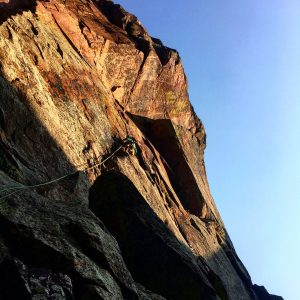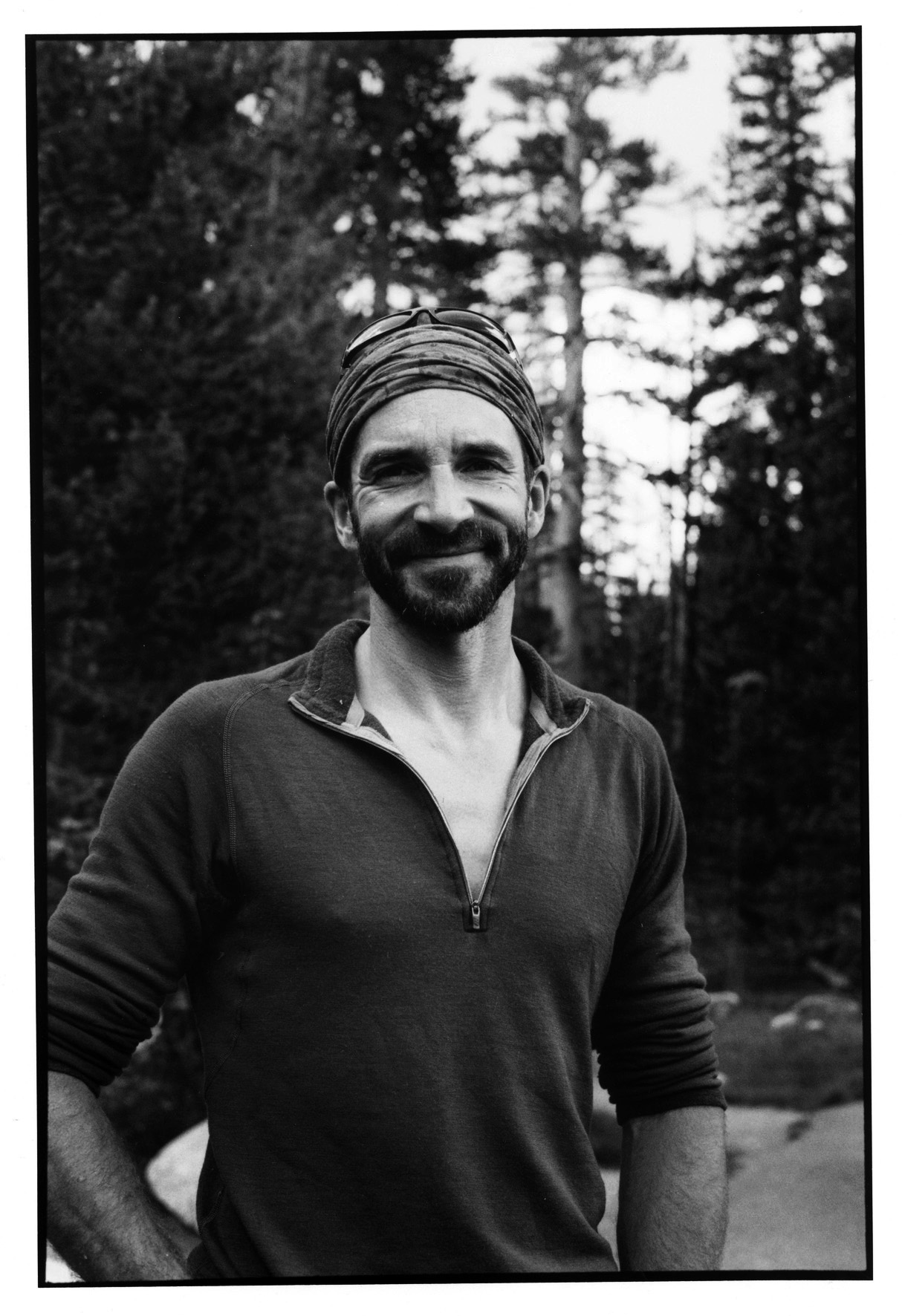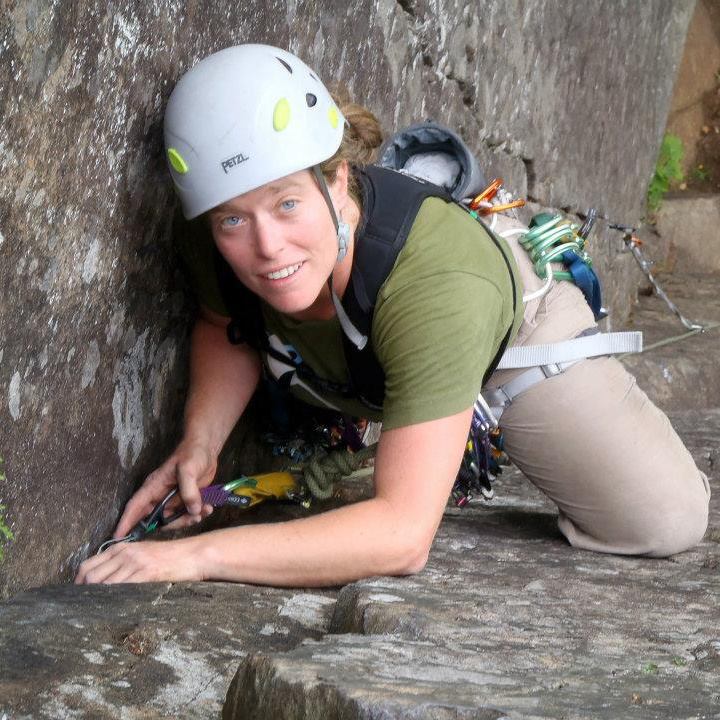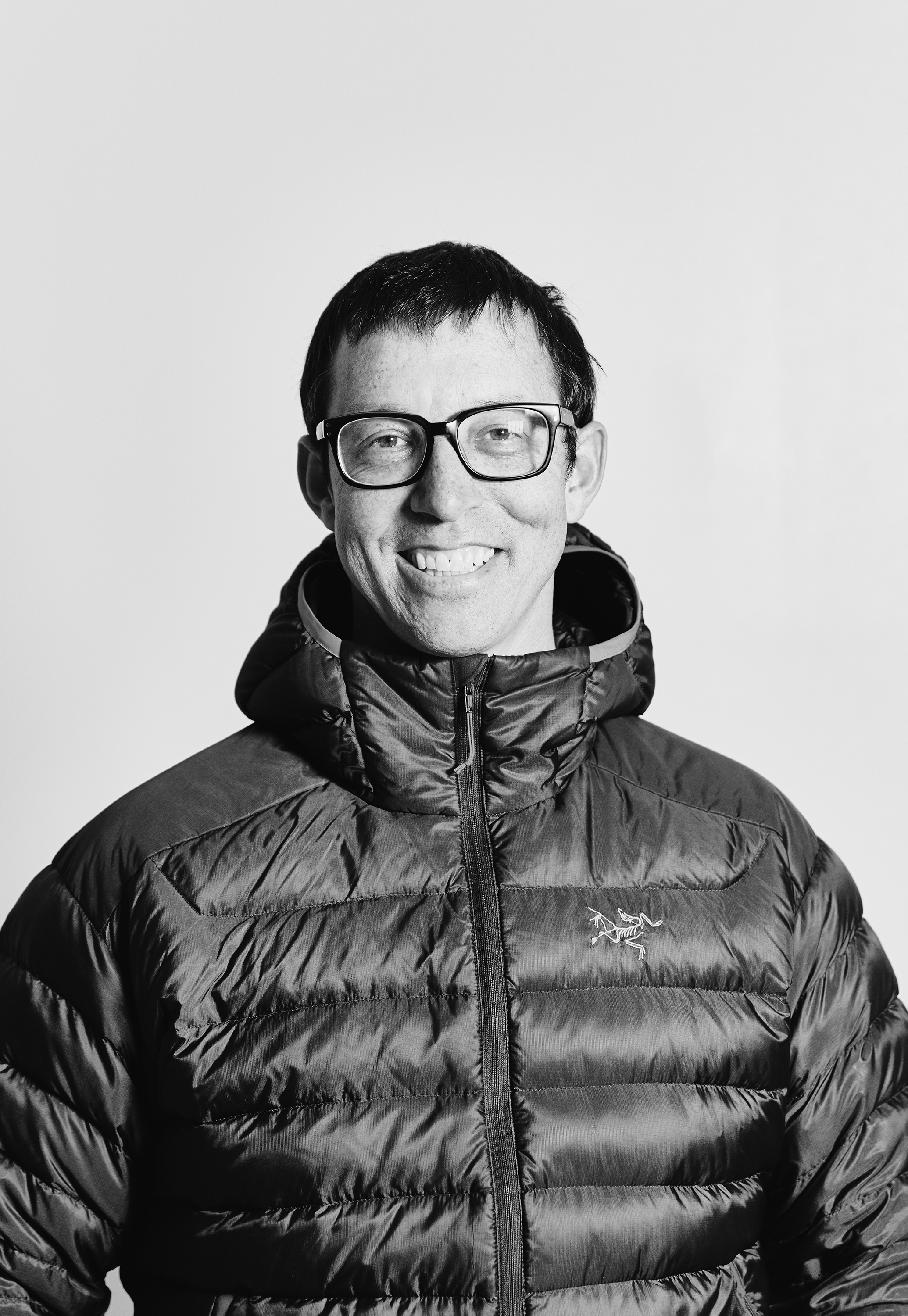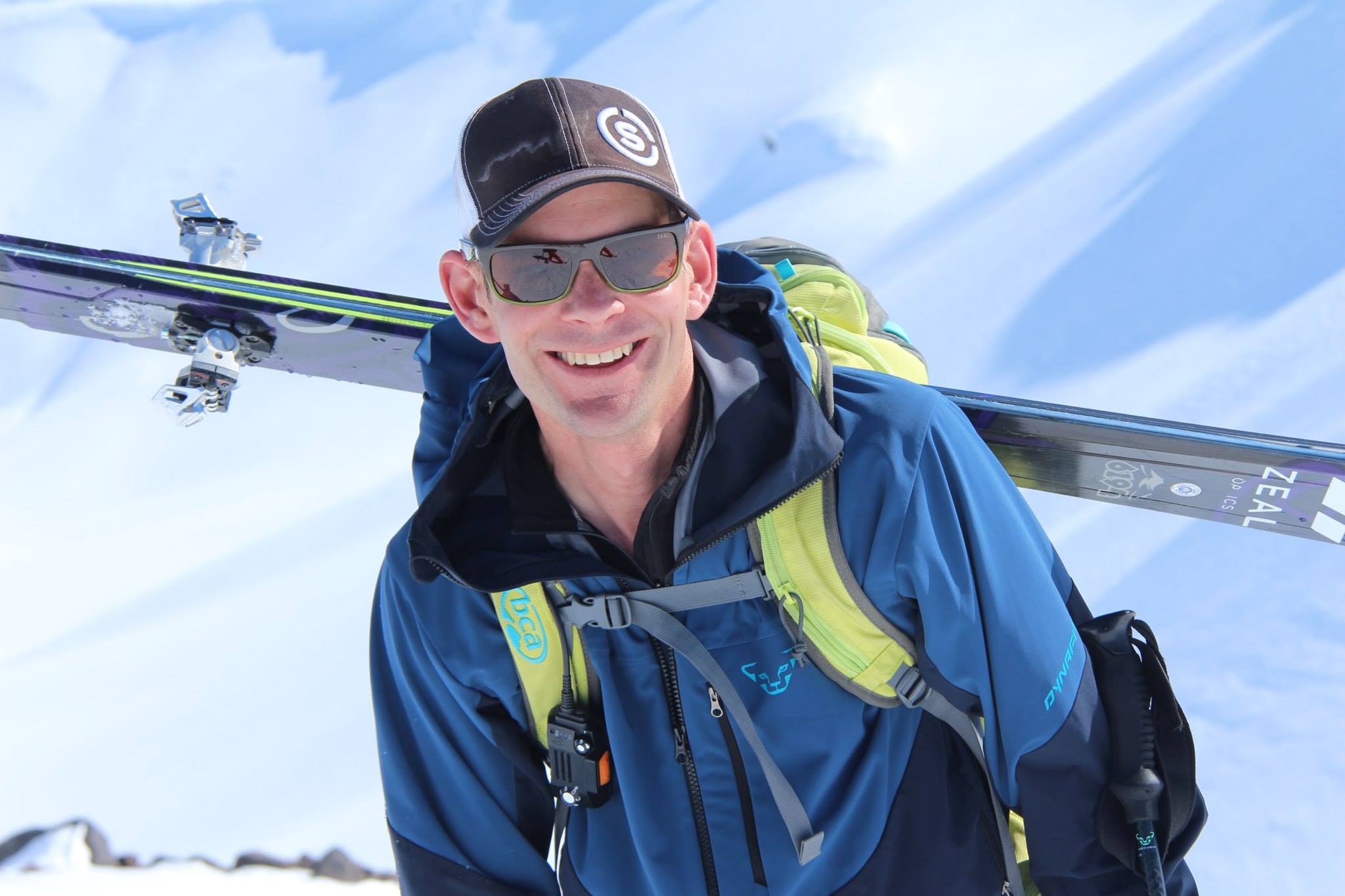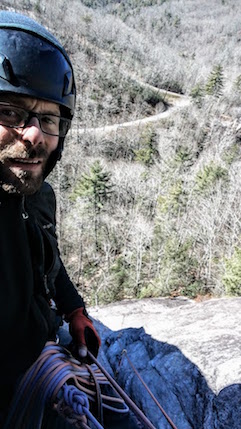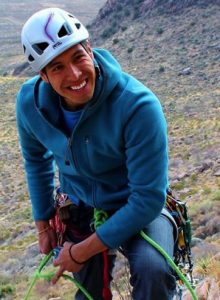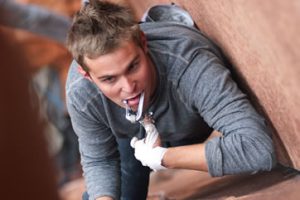2017 Eddie Bauer/AMGA Rock Discipline Mentorship Camp | Casey Graham
On September 6-7 of 2017, the AMGA, in partnership with Eddie Bauer, ran the 2017 Rock Discipline Mentorship Camp. This two-day annual event consists of low ratio (2:1) rock discipline specific training with local AMGA Instructor Team Member(s). Mentorship Camps provide opportunities for AMGA members to further their skill sets and help prepare for their next AMGA course or exam.
This year’s Rock Discipline Mentorship Camp attendees were AMGA Assistant Rock Guides, Casey Graham and Cody Bradford. Here’s what Casey had to say about his experience:
1) What does “mentorship” mean to you? Has this definition changed as the result of attending the camp?
I believe mentorship describes a necessary relationship between the highly skilled and the ambitiously curious. Mentors provide a base of knowledge for their mentees to learn from and inform their own decisions and awareness. Mentees are a reminder to their mentors that intentional thought and active discussion related to a craft is a constant process that can only improve their own critical thinking and skill set. This relationship is the keystone of progress for an industry or the philosophy of a craft, and only serves to better the members of that community as a whole. I don’t believe my definition of mentorship was change while in the process of this camp, but rather propped up and confirmed.
2) In what ways do you feel mentorship is significant to the craft of mountain guiding?
Mentorship, in my mind, is the defining characteristic of an educational process which spans the broad reaches of a profession such as mountain guiding. There is simply too much one needs to internalize in order to become an intuitively competent and intentional professional in our field to rely solely on the merits of a written doctrine. Situational awareness, the backbone of our education, can only be gleaned from experiences and our drive to fully realize the importance of them. This is where mentors are key, as they can include us in a higher awareness we aspire to understand and can assist us in ushering in the confidence and knowledge to perform the appropriate tasks in the correct applications. Mountain guiding can be a nebulous and abstract thing to teach in certain ways, but with the mentorship of those who have muddled through uncertainty before us to find clarity and precision, we can start at a higher level. Then we can only push the bar higher still by taking their lessons, and through implementation and evaluation, improve upon them further for the future guides we may mentor in turn.
3) How did the 2017 Eddie Bauer & AMGA Rock Discipline Mentorship Camp help you grow as a professional?
This camp, short as is was, did a great deal in that brief time to highlight the areas in which I can improve my guiding moving forward, as well as confirm the skills I feel confident and fluid with. I learned from both Mike and Wheels a few tips regarding further training I can pursue to build up the skills I currently struggle with. I also had multiple opportunities to practice and observe my co-mentee Cody putting all of our skills to the test on interesting guide problems, fraught with transitions, complex terrain, and always with the thought of time and efficiency tapping on our shoulders.
4) What was the biggest learning you had on the Mentorship Camp?
There were both micro and macro experiences I would say really stood out as significant learning from this camp. As a macro example, I learned to breathe easy when it comes to the exam. I know the areas in which I need to improve, and as long as I can gain further confidence in them before my exam, the rest can go on like a regular day of guiding. I am excited to pursue some of our mentors’ recommendations and see my progress moving forward, and I will hopefully be able to relax by the time I come into the exam. As a micro experience, thanks to a specific transition I performed and debriefed with Wheels coming off the top of a sharp summit to a lower, I learned to look at certain rock terrain as though it were alpine and not “just a rock climb”. I had thought this before, but for some reason it just clicked this time around and I feel more confident in applying techniques between disciplines to achieve a more satisfying result.
5) What was the most fun you had while on the Mentorship Camp?
I have often found myself having the most fun on any AMGA course in the gray spaces of the day; belay ledges, approaches and really any other point where candid conversation can happen. This camp was really no different. I have always found that I learn more from these less structured pieces of time than any other. Learning about my fellow guides, mentors and mentees alike, not only makes guiding more of a community based profession for me, but also keeps any stress or feelings of frustration or inadequacy at bay. We are all out there for the same reasons, all struggle with roughly the same things, and all keep coming back because of the bonds we make with each other, the mountains, and our own souls. Spending time with folks of a like mind and with a similar level of excitement about the tasks at hand will always be one of my favorite aspects of my time in the mountains.
6) What is your next step on your path to becoming an AMGA Certified Rock Guide?
My next step on my path to certification will include a great deal more climbing on rock and in places I am less familiar with. I am of course in pursuit of the normal resume requirements for the exam, however, I will be specifically seeking out routes that provide a great deal of guide challenges, and climbing I find challenging to onsite at the standard. I will likely take another season to ensure I feel prepared as I want to walk into the exam without any previous notion of stress. We will see how that pans out….
7) What advice do you have for future mentorship camp attendees?
I would advise any future participants in this camp to come truly prepared with a list of skills they need mentorship with. These may not always be just hard skills mind you; don’t forget the other skills that tend to fall in the cracks such as client care, the unspoken and unwritten expectations of an AMGA certified guide that seem to be only accessed through mentorship. Be flexible and ready to shift from one topic to another. Think about the skills you can work on yourself that aren’t able to be taught well enough in a 2-day course such as movement, and don’t focus on those. Focus on the little things; the rope stacking, the orientation of a carabiner, the type of anchor you want at a specific station. These are the things that get lost in the bad habits we create over time and can be clarified by a mentor, only adding to your precision and efficiency. Finally, if this camp is in Eldorado Canyon again and you are not particularly familiar with the area, leave your ego at home (more than you usually might). Eldo is a spectacular place to climb, there is no doubt. But be ready for an interesting mix of some awkward movement, interesting protection, sustained grades, and every once in a while, sandbags that could stop a flood. Eldo is not Red Rock, but is a fantastic place to train!
To learn more about AMGA Mentorship Camps, click here.
